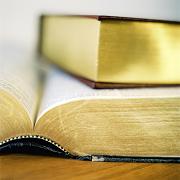
by
Carolanne Reynolds
Punctuation
COMMA
My first plea is for the serial comma, also called the
Oxford or Harvard comma.
FULL STOP
See period, wch is what it's called in North America.
PERIOD
What the UK calls a 'full stop'.
End of sentence.
[Hey! that wasn't a sentence!
Well, you know what I mean.]
QUOTATION MARKS
Please also only put in quotation marks that which is being
quoted. Think of them as parentheses and use the same
rule.
That's known as a 'hat trick'.
Don't put inside what isn't being quoted or referred to.
Easy.
The play, "Hamlet", was the first by Shakespeare that
John read.
A bit of history:
In typesetting, the little , and . wd tend to break off but the
larger ; or : etc didn't.
Typesetters found they could save space if they put the comma and
the period inside quotation marks, but left the rest (colons,
semi-colons, question marks, exclamation marks) outside. We are not
short of space today in papers or on computers but, in any case,
that's less important than enclosing only what is correct/quoted to be
enclosed.
And no reason not to be consistent.
=== PUNCTUATION [2]
APOSTROPHES! ===
POSSESSIVE!!!
Forming the possessive is not complicated at all. A simple
rule really.
Add ['s] EXCEPT if the word is PLURAL
and ends in [s], then just ['].
Many people remember something about a word ending in S but
forget that it has to be plural.
That's why the movie is Bridget Jones's Diary and you look for
the Joneses' house to find the Joneses' daughter.
Go to the boss's office or think about the bosses' meeting.
Mr Wood's name is not the same as Tiger Woods's name. Their
families are the Woods and the Woodses.
Trevor Lautens's columns are in the North Shore News.
The Lautenses live in West Vancouver, the Lautenses' house is in
the western part.